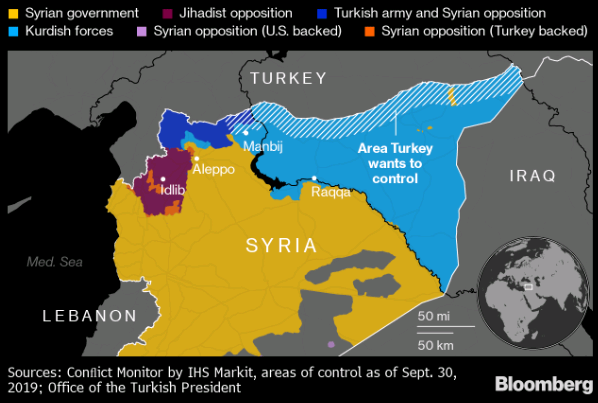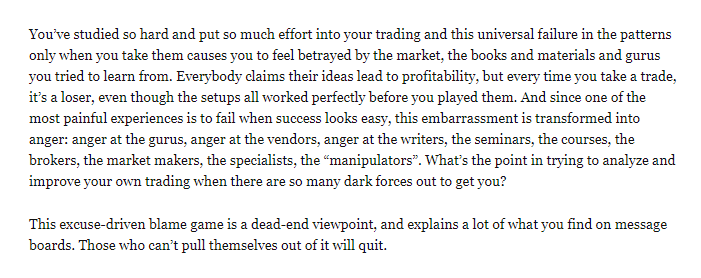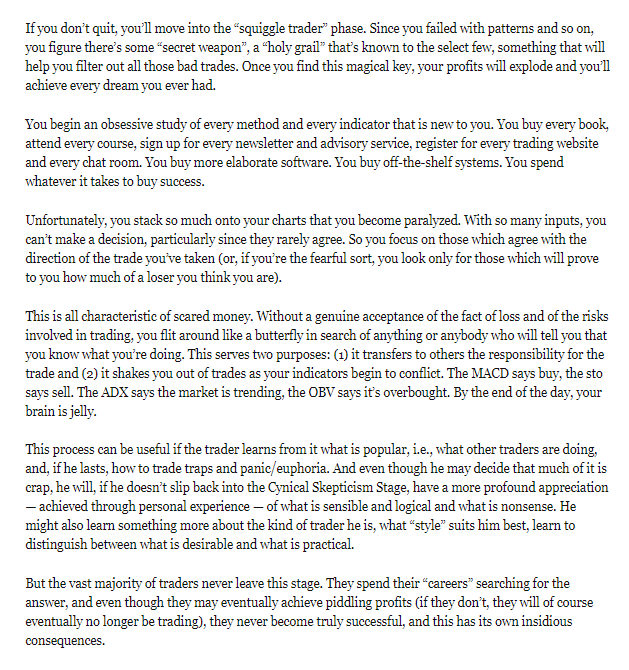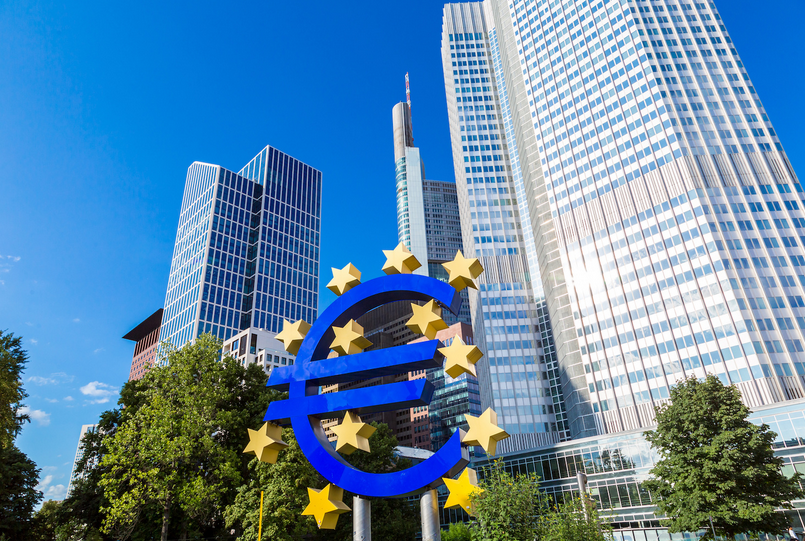Talks to resume Thursday
- Forced technology transfer
- Intellectual property rights
- Services
- Non-tariff barriers
- Agriculture
- Enforcement


If we are to become a great trader we will go through some variation of all 6 of these stages. Being aware of these stages can help you identify where you are now and where you need to eventually be. Stage
One: The Mystification Stage

Stage Two: The Hot Pot Stage

Stage Three: The Cynical Skepticism Stage

Stage Four: The Squiggle Trader Stage

Stage Five: The Inwardly-Bound Stage

Stage Six: Mastery



As former central bankers and as European citizens, we are witnessing the ECB’s ongoing crisis mode with growing concern. The ECB has pursued an extremely accommodative policy for years of economic growth and price stability. The recent slowdown in economic activity, although regarded as temporary by the ECB itself, and risks due to Brexit and the trade war, have prompted the ECB to resume net asset purchases and further reduce the already negative deposit rate. Moreover, the ECB has committed itself to pursuing this extremely accommodative path for quite some time yet.
Our concern relates in particular to the following aspects of monetary policy.
A decade ago, the ECB’s monetary policy made a significant contribution to overcoming the severe recession and consolidating growth thereafter. However, the longer the ECB stays its extremely accommodative path, the more the negative effects prevail. Interest rates have lost their steering function and financial stability risks have increased. The longer the ultra-low or negative interest rate policy and liquidity flooding of markets continue, the greater the potential for a setback. Should a major crisis strike, it will be of very different dimensions than those we have seen before. Like other central banks the ECB is threatened with the end of its control over the creation of money. These developments imply a high risk for central bank independence – de jure or de facto.